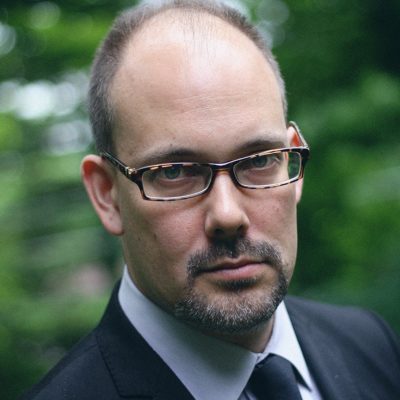
The Art of Ignoring
Understanding the space between knowing and not-knowingAbstract
Everyone agrees on the significance of information and knowledge. But it is also a curious fact that human beings often use strategies to bypass or entirely avoid relevant information and knowledge. This is referred to as ‘strategic ignorance.’
Notably, strategic ignorance is not just a complete lack of knowledge or understanding. It is an interesting process of ‘choosing’ to ignore something that you ‘know’ that you are ignoring – so in a way, it presupposes knowledge of some kind. This begs an exploration of the question as to how we, as individuals and organizations, choose to keep ourselves and others ignorant. How can we understand the space between knowing and not-knowing? Why is it often so easy to keep ourselves from knowing more about things that we could, or should know more about?
Current debates about knowledge management, organizational learning, and artificial intelligence assume that individuals and organizations want to acquire knowledge. On the flipside however, we can observe that more often than not, individuals deploy a range of creative strategies to ‘not’ know. These acts of ignoring play out in different ways, such as – avoiding questioning the relevance of one’s work, or fear and active efforts to hide one’s work from oneself and others.
In this discussion, we will explore the different issues surrounding the art of ignoring – how do we ‘view’ what is ignored or denied? How do we ‘label’ this double-denial i.e., situations where everyone ignores the fact that everyone is ignoring a potential problem? Why is it easier (and often rewarding) to ignore uncomfortable and problematic issues, than to question and address them? What are the individual-level tactics that we all employ to stop ourselves from knowing, in order to avoid responsibility and discomfort? And what are the wider structures that enable such tactics and make them so readily available? These questions along with other pertinent ones will be examined with openness and curiosity at this interdisciplinary session.
Explorer

Anna Essén is Assistant Professor at the House of Innovation at Stockholm School of Economics. She leads projects about the art of ignoring and its structural enablers, including case studies of how actors invest time and labor in accumulating data that are then systematically ignored, as well as more episodic forms of ignoring, where actors make efforts to avoid knowing about potential scandals in order to escape responsibility.
Her current projects also concern the drivers and consequences of whistleblowing and its counterpart: silence. These studies are part of her larger research portfolio about how digital technology shapes and is shaped by what individuals, organizations, and societies focus their attention on, find it worthwhile to aim for and feel capable of achieving.
Co-Explorers
The fellow academics who are from different disciplines. They explore the topic from various perspectives and make the discussion interdisciplinary.

Jens David Ohlin is professor of Law and Interim Dean of Cornell Law School. His scholarly work stands at the intersection of four related fields: criminal law, criminal procedure, public international law, and the laws of war. Trained as both a lawyer and a philosopher, his research has tackled questions as diverse as criminal conspiracy and the punishment of collective criminal action, the philosophical foundations of international law, and the role of new technologies in warfare, including cyberwar, remotely piloted drones, and autonomous weapons.
Ohlin’s latest research project involves foreign election interference and the use of disinformation as a mode of statecraft by foreign actors.

Pallabi Chakravorty is Professor of Performing Arts at Swarthmore College, Pennsylvania. She is also an accomplished dancer, choreographer, and visual anthropologist. She specializes in the study and performance of Kathak, a classical North Indian dance style.
She has also studied Indian dance reality shows, consumerist aesthetics, and the explosion of Bollywood and celebrity culture. Her latest project on yoga, performance, and healing combines medical anthropology and dance with ethnography to analyze bodies, identities, nationalism, dance, and health.

Ramón López de Mántaras is Research Professor of the Spanish National Research Council (CSIC) and founder and former Director of the Artificial Intelligence Research Institute of the CSIC. He is a pioneer of artificial intelligence in Spain with contributions, since 1976, in pattern recognition, approximate reasoning, expert systems, machine learning, case-based reasoning, autonomous robots, and AI and music. He is presently working on case-based reasoning, machine learning, and AI applications to music.
He has a PhD both in Physics and in Computer Science and has been visiting professor at both the University of Technology Sydney and at University of Western Sydney.

Sabina Čehajić-Clancy is Associate Professor of Social Psychology at Stockholm University. She is also affiliated with Sarajevo School of Science and Technology in Bosnia and Herzegovina and the Emotion lab at Karolinska Institutet. She was awarded a Pro Futura Fellowship in 2019. Sabina has a PhD in social psychology from Sussex University and she has 15+ years of experience in working as a consultant for international organizations designing and evaluating peace-buildling and reconciliation interventions.
Sabina specializes in the field of intergroup relations, specifically on reconciliation in post-conflict societies, collective emotions of guilt and shame and collective responsibility.
About Stockholm Explorative Talks
Stockholm Explorative Talks is a stage for academic discussions confronting global problems with an interdisciplinary approach, by pairing unlikely academics together. Stockholm Explorative Talks welcomes experts from all over the world for a dialogue best described as dedicated, courageous and surprising. The aim is to gather the world’s brightest brains to examine current issues from new angles, and to find creative solutions to common future challenges.
In 2021, Stockholm Explorative Talks also brings to you a webinar series featuring a diverse group of academics and artists from around the world, from different disciplines for an unusual, interdisciplinary exchange of perspectives pertaining to a range of topical themes. In the course of this transaction of ideas, the webinar series will endeavor to encourage incisive questions, and locate the best ways to explore current issues.
Stockholm Explorative Talks is founded and run by Stockholms Akademiska Forum – 18 universities and the City of Stockholm.
